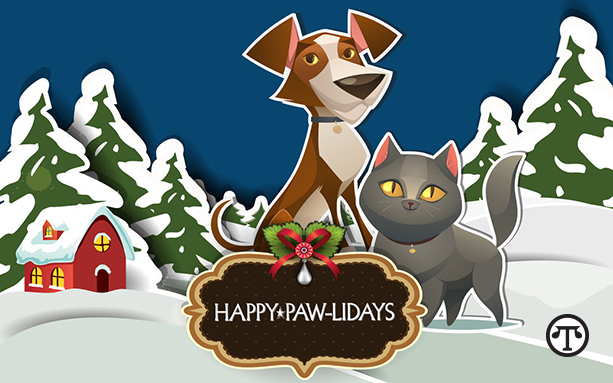
(NAPSI)—According to legend, at midnight on Christmas Eve, all animals are able to talk. If you want your pets to say nice things about you, heed five hints on how to keep them healthy and happy throughout the holiday season:
Five Steps To Protect Your Pets
As your veterinarian can tell you, certain traditional decorations, plants and treats can pose significant threats to household pets. To provide a safe holiday environment:
- Avoid certain holiday decorations that can be harmful to pets if ingested, such as ribbons and tinsel, electric light cords and candles, which can also pose a risk of fire if knocked over. Potpourris should be kept out of pets’ reach since they often contain oils and detergents that can damage the mouth, eyes and skin.
- Look out for these plants that cause sickness in pets:
- Poinsettias have a sap that can cause vomiting and will irritate an animal’s mouth and stomach.
- Holly berries and leaves can cause vomiting, belly pain, depression and diarrhea.
- Mistletoe is extremely toxic and an animal that has ingested some should be taken to the veterinarian immediately.
- Pine tree needles can be toxic and cause irritation of the mouth.
- Lily is deadly to cats. Any animal that has ingested any part of a lily should be taken to the veterinarian right away.
- Christmas tree pot additives such as aspirin or sugar can also be dangerous to pets that drink the water.
- Refrain from feeding any pet certain snacks including:
- Chocolate, which sometimes contains ingredients that can be lethal to dogs and cats.
- Macadamia nuts, which can cause seizures in animals.
- Nuts in general. They’re dangerous for pets because of their high fat content. Nuts can cause an upset stomach, and even pancreatitis and obstruct the throat and intestinal tract.
- Turkey and turkey skin can cause pancreatitis, too.
- Beware when baking. Yeast dough can cause painful gas and dangerous bloating.
- Sugar-free candy or gum containing xyliton, which has been linked to liver failure in dogs.
- Other foods to avoid feeding to your dog or cat include onions, grapes, raisins, fatty foods, fried foods, avocados and bones.
- When you leave your pets at home alone, be sure to unplug any decorations, and take out the trash so pets don’t eat any of it.
- Know the signs of pet distress including sudden changes in behavior, depression, pain, vomiting and diarrhea. If any of these occurs, call your veterinarian.
Learn More
For other good advice on pet care, see your veterinarian, advises Henry Schein, Inc., the world’s largest provider of health care products and services to office-based dental, animal health and medical practitioners.
For further information, visit www.henryschein.com, Facebook.com/HenrySchein and @HenrySchein on Twitter.
